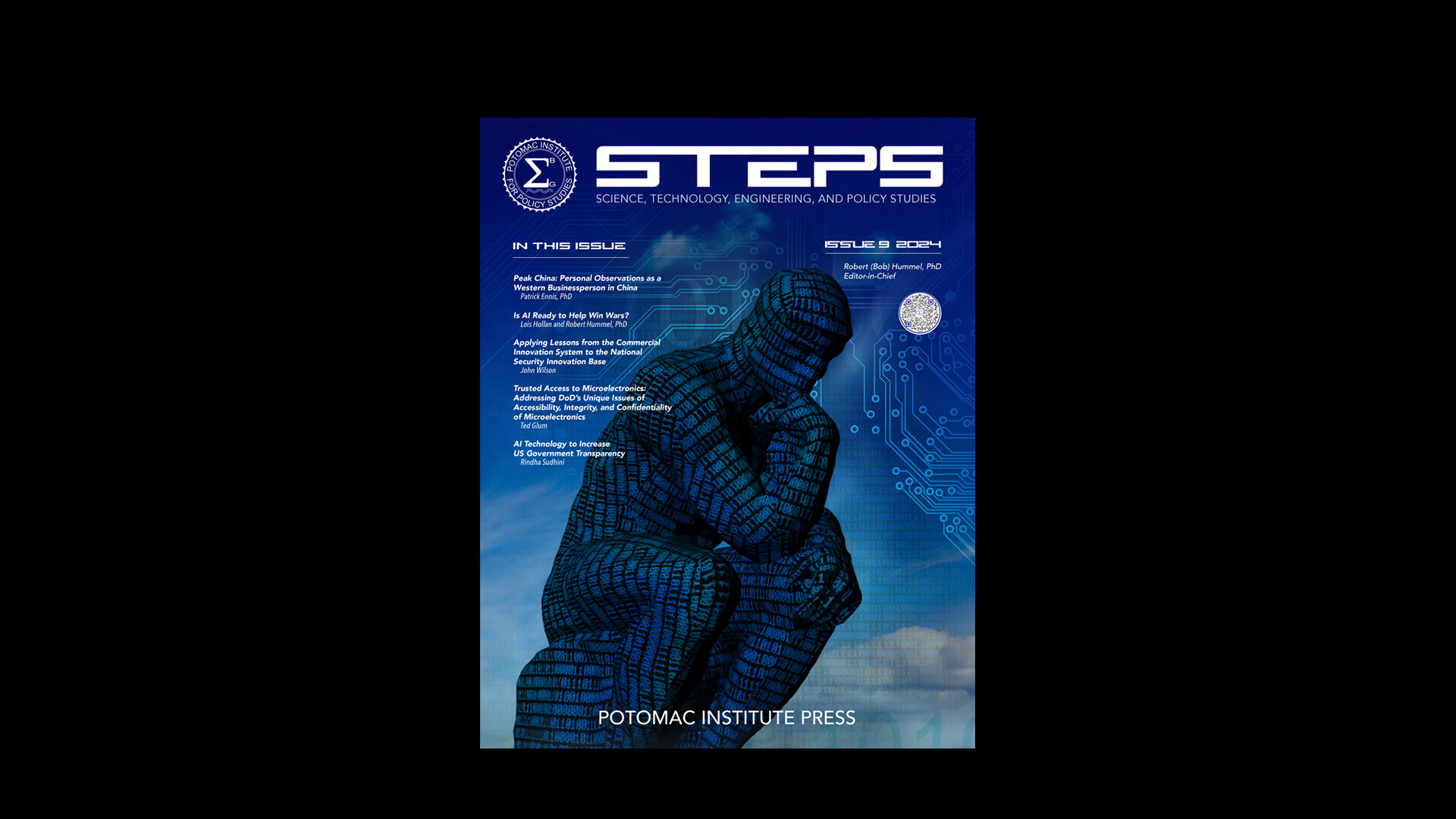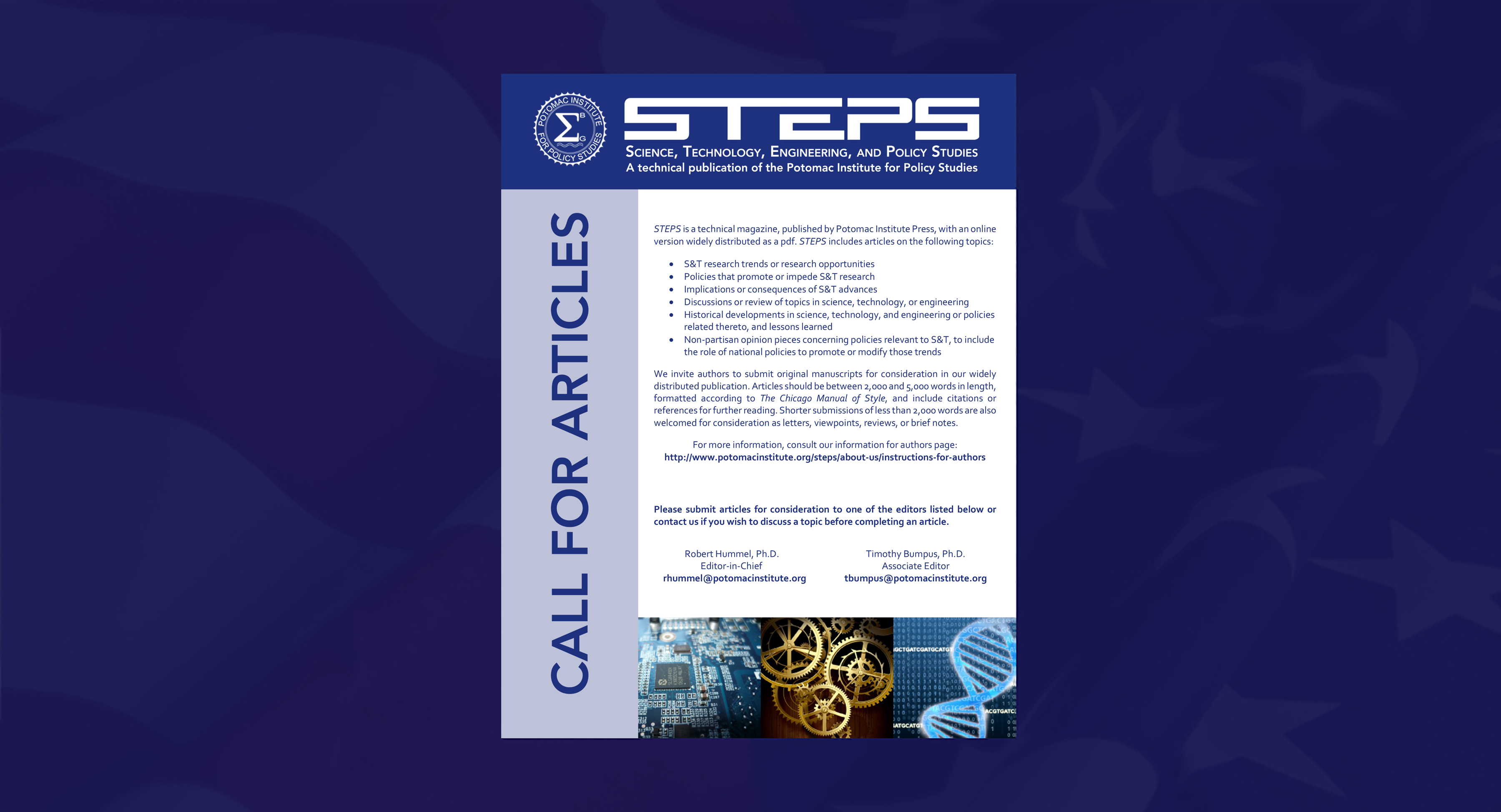Experts on the challenges involved in using intelligence to address terrorism threats spoke at a seminar at The Potomac Institute July 25. The topic was chosen because of the public debate over the unfolding NSA saga and its implications for U.S. national and global security interests.
The Institute’s CEO, Mike Swetnam, opened the seminar, speaking on technology and how rapidly communications now occur through social media. He focused not only on cyber-warfare threats, but also the need to be able to respond in real time to propaganda and events on social media. His opening remarks made the case for a proactive and united American intelligence and cyber-warfare community.
The keynote speaker for “Terrorism and Intelligence: Political, Legal, and Strategic Challenges” was Dr. Donald Kerr, who spoke of the complexities in balancing the need for intelligence against what he considered a multi-generational understanding of privacy and security. He reviewed his involvement with the FBI program CARNIVORE, which intercepted emails, as well as his role in investigations in embassy bombings and the bombing of the USS Cole. He related his struggle with finding political middle ground and the lack of serious discussions about these vital matters.
Beyond governmental operations, Dr. Kerr delved into a generational debate over privacy. What privacy means to his generation and to the youth of today, who have Facebook and Twitter accounts, is quite different in his eyes. To him, the battle to be anonymous, which is supported by younger generations, is unwinnable, i.e., anonymity should not be the foundation for future regulations and oversight of the intelligence community. Dr. Kerr’s final topic was the need for and the value of metadata in intelligence work. He closed by imploring people “to keep a clear head, ask people to justify the statements that they make, and let’s have an informed debate.”
Gen. Al Gray wrapped up the seminar, recounting his experiences from the Vietnam War, the bombings in Beirut, and the Gulf War. Throughout his speech, he repeatedly stated the importance of intelligence and how it serves a critical role in protecting America and our allies. According to the general, if the U.S. did not already have its intelligence organizations, it would need to create something similar. He expressed his gratitude to the hardworking men and women of the intelligence community, arguing firmly that intelligence work is unquestionably necessary. Gen. Gray ended his speech stating: “These are just the hard cold facts of life and we have to deal with this.”
The seminar was organized by the Inter-University Center for Terrorism Studies (administered by the International Center for Terrorism Studies at the Potomac Institute and the Inter-University Center for Legal Studies at the International Law Institute) in conjunction with the Center for National Security Law at the University of Virginia School of Law.
Professor Yonah Alexander, Director of IUCTS moderated the seminar. Mr. Swetnam, who opened the seminar, currently serves on the Technical Advisory Group to the U.S. Senate Select Committee on Intelligence. He previously had worked for the Defense Science Board Task Force on Counterterrorism, the Task Force on Intelligence Support to the War on Terrorism, and President Bush's Foreign Intelligence Advisory Board. Dr. Kerr’s positions have included: Principal Deputy Director of National Intelligence, Deputy Director for Science and Technology at the Central Intelligence Agency, Assistant Director of the Federal Bureau of Investigation, Director of the National Reconnaissance Office, and member of the Defense Science Board. Gen. Gray has an equally long and distinguished career in the U.S. Marine Corps (USMC), culminating with his appointment as the 29th Commandant of the USMC. He currently serves as a Senior Fellow at the Potomac Institute and on the Potomac Institute’s Board of Regents.
A future event for fall 2013 will focus on related issues, including how international cooperation in counterterrorism intelligence can be improved.

















